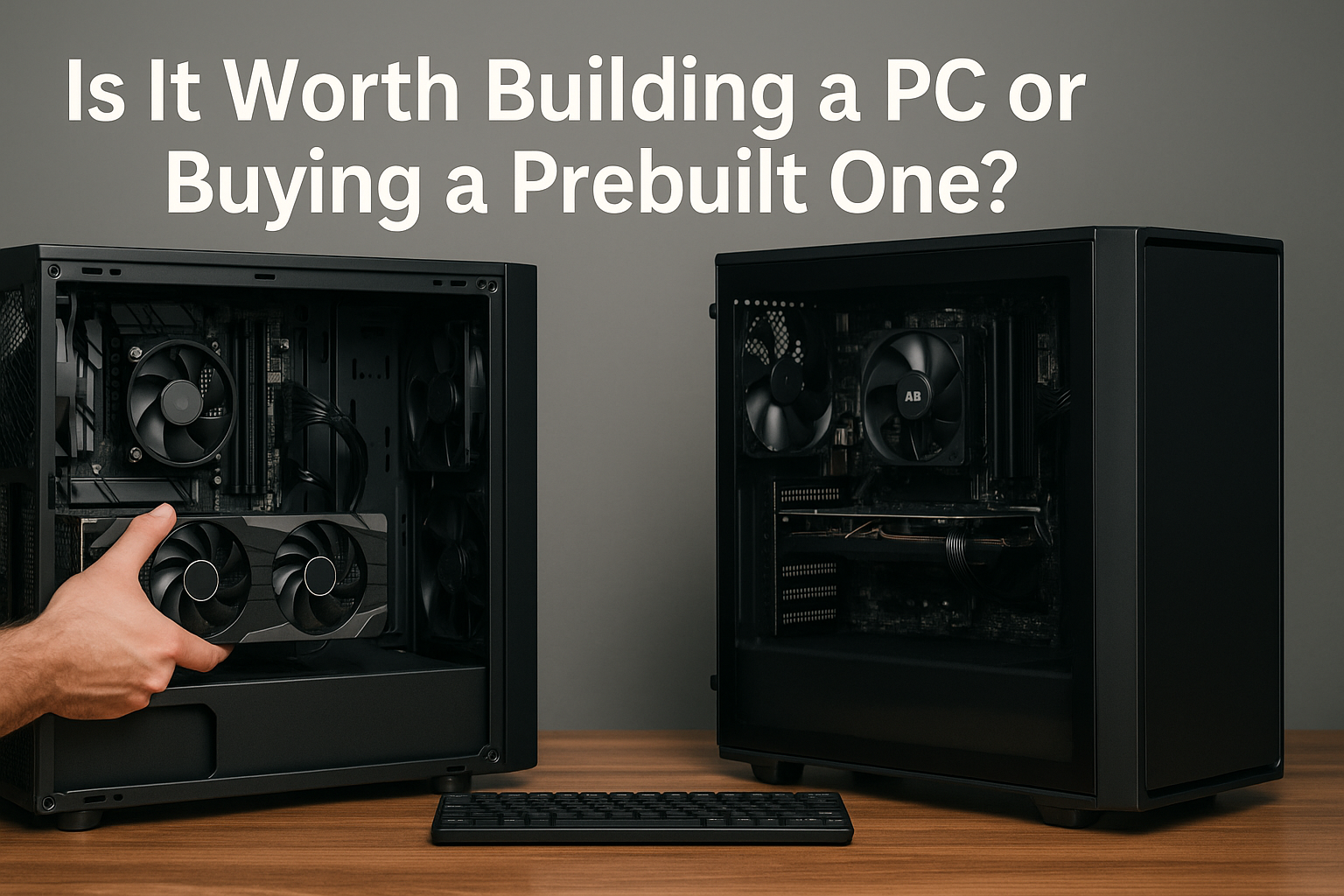The question of whether to build a custom PC or buy a prebuilt one is a common debate among gamers, professionals, and tech enthusiasts alike. Each option has its pros and cons, and the best choice largely depends on your needs, budget, and level of technical skill. In this article, we’ll break down everything you need to know to make the smartest decision—whether you’re looking to play the latest games, edit 4K video, or simply enjoy a fast and reliable computer experience.
Understanding the Basics
Before diving into the comparison, let’s clarify what each option means:
- Building a PC: This means selecting and purchasing individual components (CPU, GPU, RAM, motherboard, power supply, etc.) and assembling the computer yourself.
- Buying a prebuilt PC: This refers to purchasing a ready-made system that comes fully assembled, often including software and a warranty.
The Advantages of Building Your Own PC
1. Customization and Control
When you build your own PC, you have complete control over every component. This allows you to prioritize what matters most—whether it’s graphics performance, CPU speed, or quiet cooling.
- Gamers can focus on high-end GPUs.
- Content creators can optimize for CPU and RAM.
- General users can balance performance and cost effectively.
2. Better Price-to-Performance Ratio
Building your own system can save you money—especially if you shop during deals or already own some parts (like a monitor or peripherals). Manufacturers of prebuilt systems often mark up prices to account for labor and support services.
3. Learning Opportunity
Assembling a PC teaches valuable technical skills. You’ll learn about hardware compatibility, troubleshooting, and system optimization. For many, building a PC is a rewarding and educational process.
4. Quality of Parts
Prebuilt systems often cut costs by using lower-quality components in areas less noticeable to the average buyer—like power supplies or motherboards. When building your own, you can ensure every part meets your desired standard.
The Disadvantages of Building Your Own PC
1. Complexity and Risk
Building a PC isn’t difficult, but it does require research, patience, and a bit of confidence. If components are incompatible or not installed properly, you may face issues.
2. No All-in-One Warranty
While each part will usually have its own warranty, there is no single point of contact for support. If something goes wrong, you must identify which component is at fault and deal with that specific manufacturer.
3. Time Investment
Researching, purchasing, and assembling a custom PC can take several hours—or even days. If you need a working computer right away, this may not be ideal.
The Advantages of Buying a Prebuilt PC
1. Convenience
Prebuilt PCs are ready to go out of the box. If you want to avoid the hassle of component research and assembly, this is the fastest route.
2. Technical Support and Warranty
Most reputable prebuilt systems come with a comprehensive warranty and customer support. If your system fails, you can send it back as a whole unit—no need to troubleshoot individual components.
3. Financing Options
Many prebuilt systems can be purchased through payment plans or financing. This can make it easier to afford a new computer even if you don’t have the full amount upfront.
4. Professional Assembly
Professionals assemble prebuilt PCs, often with neat cable management and airflow optimization—especially from high-end manufacturers.
The Disadvantages of Buying a Prebuilt PC
1. Limited Customization
Most prebuilt systems offer limited upgrade paths. Some may use proprietary components or motherboards, making future upgrades more difficult or expensive.
2. Higher Cost
Convenience comes at a price. Prebuilt PCs often include a markup to cover assembly, marketing, and support services. In many cases, you’re paying more for slightly less performance.
3. Potential for Lower-Quality Parts
Manufacturers sometimes cut corners on power supplies, motherboards, or cooling systems—areas where cost savings are less visible but can affect performance and longevity.
Use Cases: Which Option Fits You?
Let’s look at different user profiles and which option may be best for them:
- Beginners: If you’ve never built a PC before and don’t have much time or interest in learning, a prebuilt system is the safer choice.
- Gamers: Enthusiasts who want to maximize performance-per-dollar often prefer building, though high-end prebuilt gaming rigs can be solid choices too.
- Professionals: Video editors, designers, and engineers may benefit from custom-built PCs tailored to their software needs.
- Students or Casual Users: A reliable prebuilt PC can be perfect for school, work, or media consumption.
Hybrid Options: The Middle Ground
Some vendors offer semi-custom PCs—prebuilt systems that allow some level of customization, such as choosing between different GPUs, CPUs, or storage options. This can offer the best of both worlds: convenience and flexibility.
Alternatively, some enthusiasts buy barebone systems (a partially assembled PC) and finish the build themselves, saving some money while avoiding the hardest parts of assembly.
Final Thoughts: Build or Buy?
The decision ultimately depends on your priorities:
| Factor | Build a PC | Buy Prebuilt PC |
|---|---|---|
| Budget | More cost-effective | Generally more expensive |
| Time & Effort | High | Low |
| Customization | Very High | Limited |
| Technical Skill | Required | Not required |
| Warranty & Support | Per component | Unified system-wide |
If you enjoy learning and want the best bang for your buck, building a PC is likely the better choice. However, if you want speed, ease, and support, a prebuilt system may better fit your needs.
In both cases, doing your homework pays off. Read reviews, compare specs, and be clear about your goals before spending your money.

